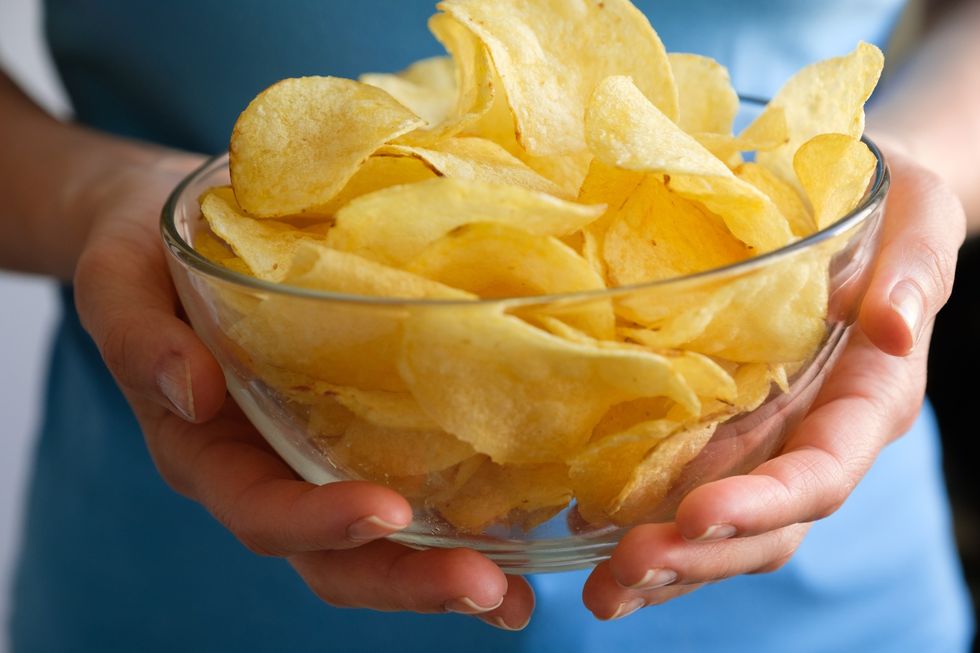Dr Natasha Fernando shares dietary tips to maintain healthy cholesterol levels
GB NEWS
Diets high in ultra-processed foods have been linked to an increased risk of 32 different diseases, including diabetes and cancer
Don't Miss
Most Read
Latest
Ultra-processed foods are contributing to approximately 18,000 premature deaths annually among middle-aged Britons, according to a study.
These foods, including ready meals and fizzy drinks, now make up 54 per cent of the average British daily calorie intake.
Researchers analysed diets across eight countries to estimate deaths linked to foods such as ready meals, confectionery and processed meat.
The study, published in the American Journal of Preventive Medicine, examined data on ultra-processed foods consumption in Britain and other nations.

Ultra-processed foods make up 54 per cent of the average British daily calorie intake
GETTY IMAGES
Ultra-processed foods (UPFs) refer to mass-produced items with multiple ingredients and additives that couldn't be created in a home kitchen.
Diets high in UPFs have been linked to an increased risk of 32 different diseases, including diabetes, cancer, heart disease, obesity and depression.
In the study, Britain ranked second only to America for UPF dependence, with the US figure at 55 per cent.
Researchers calculated that 14 per cent of premature deaths (adults aged 30-69) may be attributed to UPF consumption in both the US and Britain. This meant an alarming 17,781 deaths in Britain in 2018-2019, the latest year for which data was available.
Every 10 per cent increase in daily calories from UPFs raises the risk of death from all causes by three per cent.
Eduardo Nilson, of the Oswaldo Cruz Foundation in Brazil and lead author of the study, explained that UPFs are harmful to health due to "changes in the foods during industrial processing and the use of artificial ingredients".
He added: "Policies that disincentivise the consumption of UPFs are urgently needed globally."
The study was based on observational data and could not prove a causal link between UPFs and deaths. It was not confirmed whether the act of processing was in itself harmful or if the high salt, fat and sugar contents formed the root cause.
Scientists have noted that people who consume lots of UPFs often have other unhealthy habits, like smoking or not exercising.
Stephen Burgess, a statistician in the Medical Research Council at the University of Cambridge, said that the research "cannot prove that consumption of ultra-processed foods is harmful, but it does provide evidence linking consumption with poorer health outcomes".
He supposed that the causal factor could instead be physical activity. However, he added that when similar associations appear "across many countries and cultures, it raises suspicion that ultra-processed foods may be more than a bystander".
Nerys Astbury, an associate professor at the University of Oxford, noted that the study "adds to the body of evidence on the association between UPF and ill health".
Campaigners are now calling for tougher regulations on UPF advertising and national guidelines warning of their harmful effects.
LATEST DEVELOPMENTS

Ultra-processed foods may be to blame for 17,781 deaths in Britain in 2018-2019
GETTY IMAGESWhat is ultra-processed food?
The British Heart Foundation provides important information on what makes food "ultra-processed" and the popular products that fall under this category.
The term "ultra-processed food" comes from the NOVA food classification system. These foods typically contain more than one ingredient that you "never or rarely find in a kitchen".
There's an important distinction between processed and ultra-processed food. Processed foods are made by combining unprocessed or minimally processed foods with processed ingredients such as salt, sugar and oil.
Ultra-processed foods, on the other hand, usually include several additives and ingredients that are not typically used in home cooking, such as preservatives, emulsifiers, sweeteners, and artificial colours and flavours. These foods generally have a long shelf life.
Popular ultra-processed foods
- Ham and sausages
- Mass-produced bread, breakfast cereals, instant soups
- Crisps and biscuits
- Ice cream and fruit-flavoured yoghurts
- Carbonated drinks and some alcoholic drinks, including whisky, gin, and rum
For more information on ultra-processed foods - including how to cut down your consumption - visit the British Heart Foundation. The NHS also provides detailed information on processed and ultra-processed foods.













